Kyndryl CEO Martin Schroeter: We Are Exiting The Influence Of IBM
‘This is not a business that IBM really invested in. It chose not to. So we now have an opportunity to not only move into the ecosystem that matters, but also to invest in the business and create the kinds of offerings that our customers will invest in, but just as important, how they think about us,’ says Kyndryl CEO Martin Schroeter.
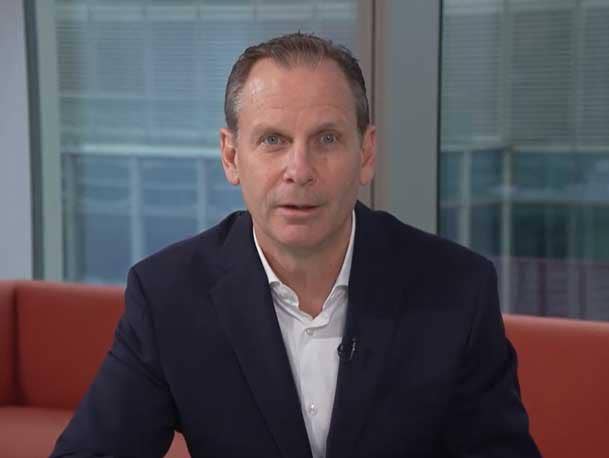
World’s Largest Startup Looking To Make Its Own Way
When Kyndryl, the former managed infrastructure business of IBM was spun out of Big Blue in November of 2021, it immediately became the world’s largest IT startup, a global solution provider with about 90,000 employees and about $19 billion in revenue. The spin-out itself was smooth, with Kyndryl immediately becoming a public company and looking for ways to grow its business.
But the company still carries a lot of baggage from its former role as part of IBM. Kyndryl CEO Martin Schroeter, in an exclusive meeting with CRN, said that the company’s dependence on IBM in the past means that its immediate future is tied to the legacy revenue and technology of its former corporate parent. For instance, Schroeter said, IBM was focused on the IBM Cloud and Red Hat, which meant that Kyndryl, to meet clients’ needs, has had to forge its own relationships with the likes of Microsoft Azure, Amazon Web Services, Google Cloud Platform and VMware.
Kyndryl is also responding by building new skills in non-IBM technology, including cloud, AI and security, Schroeter said.
[Related: KYNDRYL DEBUTS: 10 THINGS TO KNOW ON THE IBM SPIN-OFF]
“Each of the relationships that we’ve signed and are building with our partners like Microsoft, AWS and Google has a co-investment in our skills,” he said. “So our money plus their money. In fact, Microsoft created something called Microsoft University for Kyndryl. Google created something called Google Academy for Kyndryl. So top-of-the-list for our investments are skills. Because that’s what our customers are looking for us to do to run their systems of record.”
Schroeter knows that Kyndryl has a lot of investment to make to succeed, given that IBM in the past under-invested in the managed infrastructure business which it saw as gradually declining.
“IBM didn’t want to invest in it,” he said. “I think their point of view was, without investment, it’ll never turn around, and therefore it’s always going to be 1 to 2 points of drag on IBM’s revenue growth.”
Kyndryl has a lot going for it because of the skills it built and the customers it signed as part of IBM. But it knows it needs to move quickly to prove it can succeed as an independent global solution provider. For a look at what the company has planned, read on.

Tell us about Kyndryl today.
I love talking about Kyndryl. I guess I still am employee number one. You know, I came back from retirement to take on the spin-out on January 15 of last year. We had worked on this spin out from IBM for about 10 months, and then we spun out in the beginning of November. … We have a ton of work underway even after this spin in order to be truly independent, as you would expect. Like all spins, we were born with the systems that used to help run the business. So we have a whole series of transition service agreements, TSAs, between IBM and Kyndryl. We rely on them for our financial systems, our procurement systems, our payroll, HR, and so on. So all of that still is in the process of coming out of IBM. We have two years from the spin date. So we’ve got about 15 months left. If you asked our CIO, he would tell you the number of hours we have left, because he’s really focused on getting us off their systems.
We’re independent. We’ve got a lot of work to do to be truly independent in terms of our systems. We were very quick to take advantage of our freedom of action by signing really important relationships and partnerships with the ecosystem that matters to our customers: Microsoft, Google, AWS, SAP, VMware, Oracle, Lenovo, there’s a bunch. So we were very quick to take advantage of our freedom of action. And we’ll turn those relationships into really sizable, important businesses for us. And in fact, I would say that our pathway to get back to growth will be fueled by us taking advantage of that freedom of action, along with us investing in our own business. This is not a business that IBM really invested in. It chose not to. So we now have an opportunity to not only move into the ecosystem that matters, but also to invest in the business and create the kinds of offerings that our customers will invest in, but just as important, how they think about us.
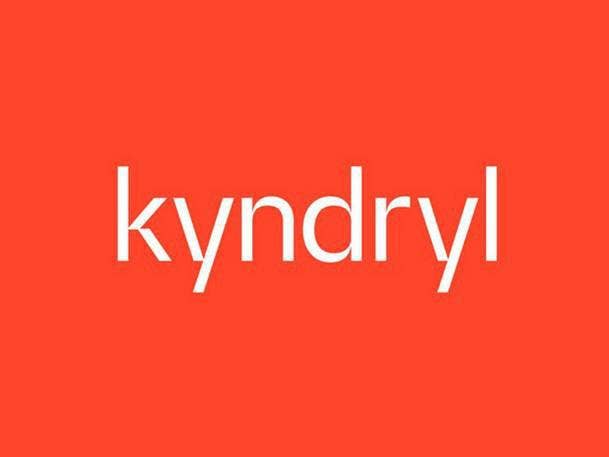
So Kyndryl is really a big startup.
I still consider us the world’s largest startup, just over 90,000 of us. We were born recently, so we are a startup. But at the same time, we were born as the largest in this space, probably 2X the next infrastructure services provider in our space. So we’re born with really wonderful, trusted customer relationships, with deep knowledge of their systems of record, deep knowledge of their ways of working, and how all these things link together. And obviously, with a lot of trust, because of the nature of the work they let us take care of. So we’re born well with our customers. We’ve got work to do to become fully independent. We’ve taken advantage of our freedom of action by moving into the ecosystem that matters.
Yet the IBM relationship is key, right?
We have a very substantial commercial relationship with IBM. I expect we are and will be for quite a while their largest customer. We also provide them some services. They’re not anywhere near our largest customer, but they are an important customer because we do work for them. But we are their largest customer. We manage more than half the mainframes, which means we also play a very important role in how customers experience the IBM mainframe platform, and other things. So the IBM relationship is important for us, and it’s important for them as well. And I think we’ll see it evolve as we go through time. It’s still very fresh. They still have to get used to us being independent. We have to get used to us using our independence. But the relationship is much more than the TSAs. It’s a very important commercial relationship, all designed by IBM, right? This was, as I was reminded, not a negotiation. As we say here, we didn’t get to pack our own suitcase for this journey. IBM packed the suitcase. We’re gonna play the hand we were dealt.
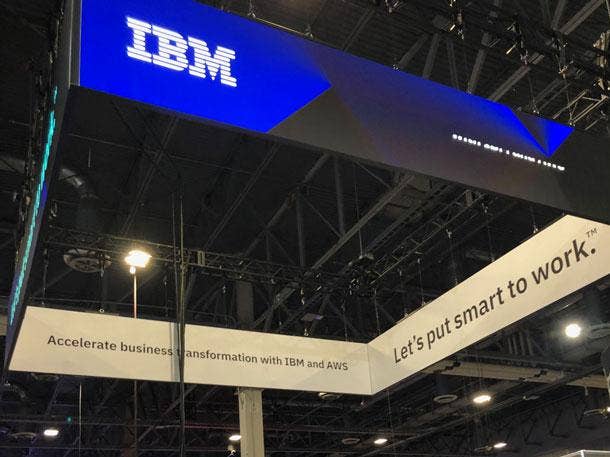
Given all that, why did IBM spin out Kyndryl as a separate company in the first place?
It’s a good question. Look, I wasn’t there, so I wasn’t involved. But I can give you sort of a mix of what I’ve read [and heard]. I think I have a sense of both the value creation opportunity they saw for what was at the time ‘NewCo,’ which I think is very logical when I say it. And then I’ll speculate a little bit on the value creation opportunity they saw for the rest of their business.
On the Kyndryl side, this business was declining in revenue five or six percent. And it was at the time, a couple years ago, $19 billion of IBM’s - call it $80 billion. So this was a sizable business. And as I said, IBM didn’t want to invest in it. I think their point of view was, without investment, it’ll never turn around, and therefore it’s always going to be 1 to 2 points of drag on IBM’s revenue growth. Just mathematically, it’s a big drag. So I think the value creation opportunity for Kyndryl is pretty straightforward. If IBM spins [the infrastructure services business] out, we get our own P&L [profit and loss], we get to invest in our business because we don’t have other opportunities like IBM does. And importantly, we get the freedom of action to participate in the ecosystem that really matters to the world that we couldn’t do as part of IBM. We didn’t have a relationship with Microsoft or Google or AWS, because IBM wanted us to focus on IBM Cloud and on Red Hat. So between the ability to invest and the freedom of action you get as an independent firm, I think they were, and as I am today, quite confident there’s an ability to create a lot of value for shareholders as we return to growth, as we improve profit margins, as we move into the part of the market that’s growing, which is outside IBM’s ecosystem.
The IBM side, I think really was, if we get this $19-billion that’s declining 5 or 6 percent a year out of our revenue streams, we get the mathematical benefit of growing faster. So I think IBM’s point of view was, ‘Look, we’ll take out this declining vector, which is weighing down our overall growth rates. We’ll really focus in on the software business.’ … So IBM now not only has faster growth, but because we were a lower margin than their average, then they also have a higher margin business
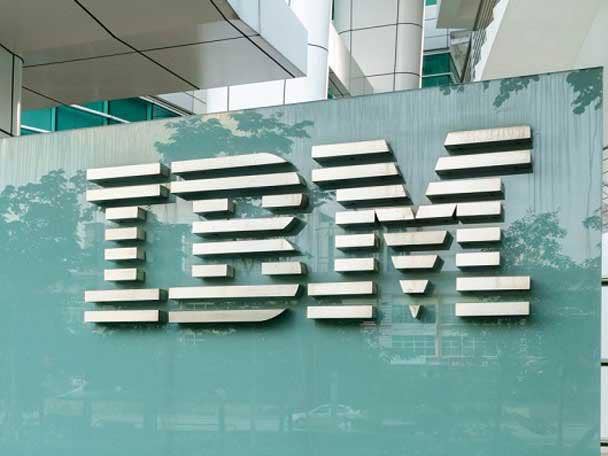
Are there any other lingering impacts that you need to overcome from the prior relationship with IBM before growth resumes? In other words, is there any drag from the previous relationship?
The short answer is yes. The business that’s coming through our P&L this year is really business that was signed in 2018, 2019, and 2020. Prior, I think, even to the spin being contemplated. Everything that’s in our P&L this year and a lot of what’s in our P&L next year is going to be a reflection of what IBM signed when we were still part of IBM. Over time, the backlog turns over, right. So we entered this fiscal year [and knew] about 85 percent of the revenue that we’re gonna get already. It’s stuff that was put in the backlog when it was owned by IBM. We already know at the start of this fiscal year, April 1, about two-thirds of what’s going to come in the following fiscal year. So in the first 24 months, we know three quarters, roughly, of the business. So what we’re working on, and what we’re putting in the portfolio now, what we’re adding to the backlog, is reflective of us as an independent firm. It’s going to take a while for that to show up in the P&L.
Here’s the good news. As I said before, we were born really well with customer relationships. We were born really well with the trust they have in us, and they are very excited about this split. [Customers tell us] they are very excited about us moving into the ecosystem. They are very excited about us moving and investing in offerings and practices that are relevant to them. So our customer reaction has been very positive. We brought them all on the journey with us. But like I said, the business we sign now is only going to show up really in a meaningful way in the P&L in three, four years time. So that’s why we’ve told the world it’ll take us a few years to get back to revenue growth.

So what kind of investment is Kyndryl making in improving the ability to go out and build a total portfolio.
Top of the list for us are skills. Each of the relationships that we’ve signed and are building with our partners like Microsoft, AWS, and Google has a co-investment in our skills. So our money plus their money. In fact, Microsoft created something called Microsoft University for Kyndryl. Google created something called Google Academy for Kyndryl. So top-of-the-list for our investments are skills. Because that’s what our customers are looking for us to do to run their systems of record, the ones that we know so much about today. ...
We’ve also been investing in our platform. Now I won’t say anything on the record yet. We’ll talk [later] about the platform. But in addition to being born well with customers, we were born well with IP and with data. That IP comes in the form of an ability for us to manage multiple clouds and create resiliency features that a customer might use in a simple environment, and spread that over a more complex environment. Think of it as an ability to bring customers onto a common platform with partners, and deliver services organized in a way for us across the six practices that we’ve created. So the IP and the data we have really helps our customers understand how can they best manage operational risk, how can they try new things and not put their systems of record at risk, et cetera. So for us, when we think about the path back to growth, it takes a few years because the first few years come out of the backlog. But we were born well with IP, with data, and with customer relationships. So as we invest in skills, we’ll get to put those to work to solve our clients’ hardest problems, quite frankly. And we invest in each of those. We think about them in the terms of the practices that we’ve built.
What practices?
We have a practice around cloud and data applications and AI. That’s only one, not three. We have a practice around security and resiliency, a practice around network and edge. So we have these practices that we’re building our skills in. And that’s how we show up now in front of our customers and bring all of that together for them to provide an end-to-end infrastructure solution for where they want to go.
We have two other practices, they’re not considered high growth. So we have a practice around digital workplace services, DWS. It grows a little bit, but it’s not a high growth area like cloud data and AI. And we have a practice around what we’re really known for today, which is IBM’s Z cloud, managing mainframes, managing on-prem workloads.
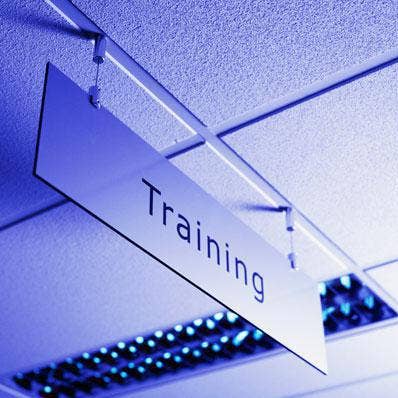
What areas of expertise are you still looking to invest in for the next six to 18 months?
Most of our investment on the skill side are for skills that our customers are demanding the most, such as Azure, AWS, and Google Cloud. We have a very big push to get our teams credentialed and experienced in helping our customers manage those public cloud environments. We also have a big focus on building our security skills. IBM has a security software business, and the skills we had were very much wrapped around the IBM portfolio. Now we need to go build skills for a much broader set of technologies than just IBM security technologies. So we have a big focus on security. We have a big focus on data, applications and AI, because we are big managers of Oracle, SAP, all the mission-critical apps. And our customers increasingly want us to use our data and our AI to help them manage operational risk to take advantage of automating service delivery and making sure they’re using the latest and most robust tools and ways of working, all of which is applied to big applications in their mission-critical workloads. And finally, we are retooling and building out our network and edge practice. Our networking business was really more of network resale and a little bit of network build out. And that’s not the highest value for our customers. We’re now helping our customers and building skills around edge technology so they can get their data from where it’s being generated to where they need it. So we’re investing as well in network and edge experts.
Does Kyndryl partner with other service providers, with your peers, in working with clients?
Absolutely. We are very focused on the managed infrastructure part of the market. About 90 percent of our business is focused on running the infrastructure. About 10 percent of our businesses is more advisory in nature, but it’s advisory around infrastructure. A CIO may be trying to figure out if they can take, refactor, custom applications that are running today and run them on Google Cloud, as an example. We would need a partner to help us refactor those applications, like Accenture, IBM, Wipro, HCL, or Cognizant. ... But we are absolutely working with other service providers because the area that we’re really focused on, that we’re really good at, that we’re really differentiated, is that managed infrastructure for mission critical. We’re known to integrate technology in the data center. That’s what our customers think is our strong suit. So yes, we partner with other service providers to help along those journeys.
You’ve seen our financials. We are in total in the 20-percent [margin] range. Now, we have a lot of accounts and relationships that were created in a different regime. When there are different missions, we have to get them fixed. But even if we do really well, we’re gonna be in the high 20s margins. That’s not accretive for these big application shops like Accenture and others. So what looks great to us is not looking so good to them. So they’re quite happy for us to play the role in the infrastructure we do well. We can make a lot of money.
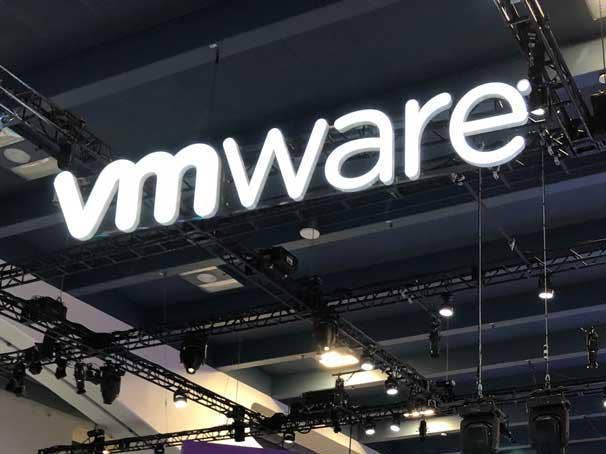
What are some areas that you want to do more partnering in? And who are some of the key new partners you’ve brough on since the spin off from IBM?
In some ways, our partners can also be described, sort of, how our customers would describe what we do. That infrastructure layer is so important, and our biggest partners there, which we were prevented from having a relationship with, Google Cloud, Microsoft Azure, and AWS, they sit at the core of the partnerships. And each of those partnerships has, as I said before, a joint co-investment in skills. They have a joint go-to-market, so we and Microsoft, we and Google, we and AWS, show up in the customer’s environment together. And they have co-innovation with us. So our developers, our fingers-on-keyboards people, are sitting down with them and trying to figure out where’s the best place we can build something together. So they sit at the base of our partnership network. And then others would sit on top of that. So we now have a partnership, for instance, with VMware, which we rekindled because we were previously asked [by IBM] to help Red Hat, and Red Hat and VMware are competitors. VMware sits on top of all those clouds and on top of our skills. Our partnerships with Juniper [Networks] and Lenovo and Dell [Technologies] and the others all sit on top of that infrastructure layer. But they also sit on top of our hyperscaler cloud alliance strategy. That is for our customers, the journey that each of them is on: How do they get more of their stuff attached to or running on a cloud so they can get the benefit of whatever it is they’re looking for on the cloud.
Kyndryl has yet to make any acquisitions. Are acquisitions part of your plan? Do you see inorganic growth opportunities?
The timing’s just not right for us yet. Broadly speaking, we’re 90,000 people. We have to move all of our systems, as I said. We have customers we have to bring in. I don’t think we as a team need to figure out if we were to buy some skills, for instance, how do we integrate, say, 1,000 people into 90,000. That’s just not a challenge we’re ready to take on. We’ve got plenty to do on the spin. And if it were some intellectual property that would really help our platform, look, we were born so well with IP and data. We’re just trying to get our arms around what we have before we go figure out what else would we put in there.
So yes, is the short answer. At some point, we will become acquisitive. At some point, we will see things that can really help us accelerate or extend our lead in infrastructure services. But for now, we’ll just keep completely focused on executing the plays we’re running: get these alliances really successful, focus on our advanced delivery efforts, and get these accounts that need some attention fixed as quickly as we can.